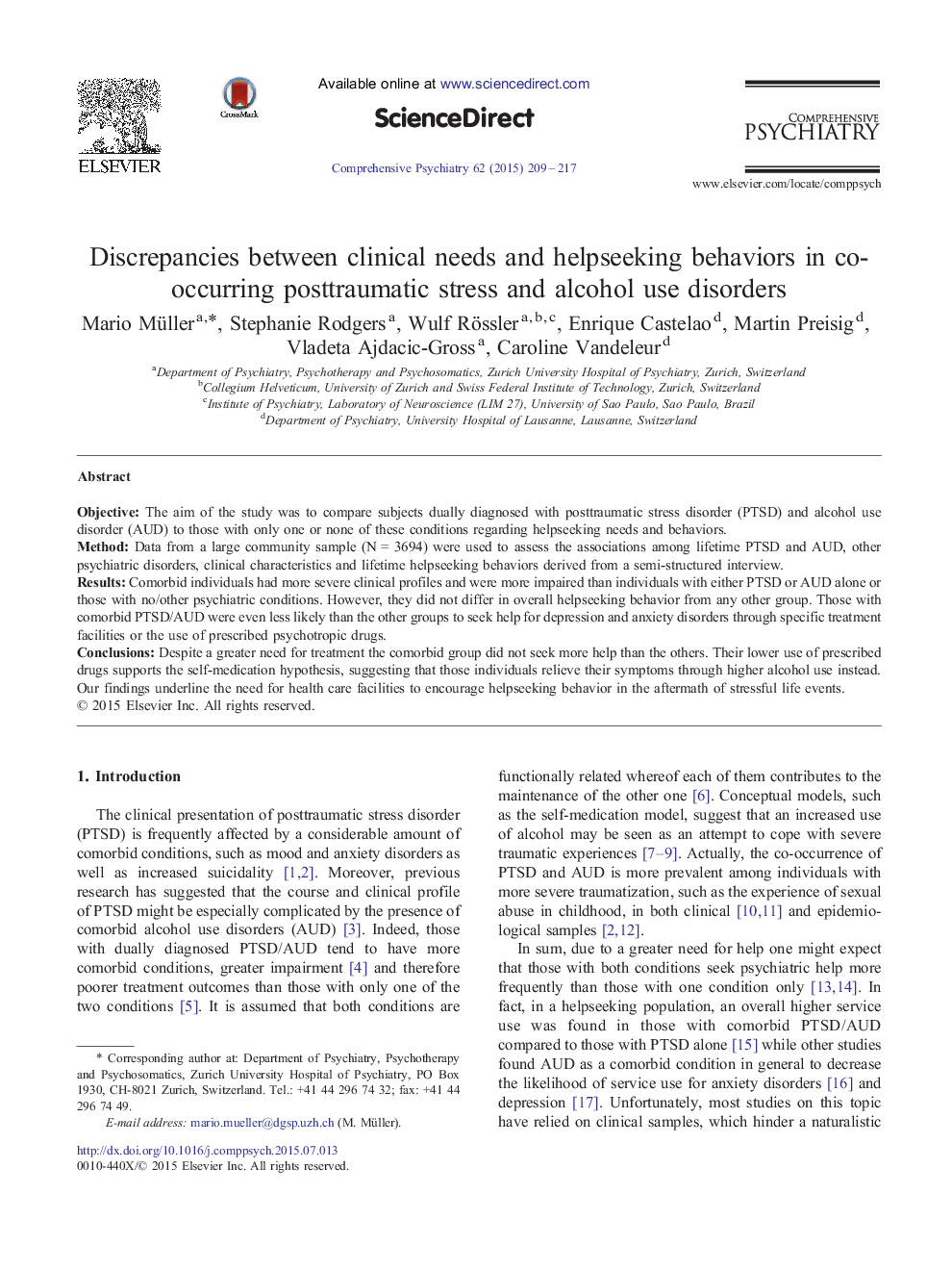| Article ID | Journal | Published Year | Pages | File Type |
|---|---|---|---|---|
| 317985 | Comprehensive Psychiatry | 2015 | 9 Pages |
ObjectiveThe aim of the study was to compare subjects dually diagnosed with posttraumatic stress disorder (PTSD) and alcohol use disorder (AUD) to those with only one or none of these conditions regarding helpseeking needs and behaviors.MethodData from a large community sample (N = 3694) were used to assess the associations among lifetime PTSD and AUD, other psychiatric disorders, clinical characteristics and lifetime helpseeking behaviors derived from a semi-structured interview.ResultsComorbid individuals had more severe clinical profiles and were more impaired than individuals with either PTSD or AUD alone or those with no/other psychiatric conditions. However, they did not differ in overall helpseeking behavior from any other group. Those with comorbid PTSD/AUD were even less likely than the other groups to seek help for depression and anxiety disorders through specific treatment facilities or the use of prescribed psychotropic drugs.ConclusionsDespite a greater need for treatment the comorbid group did not seek more help than the others. Their lower use of prescribed drugs supports the self-medication hypothesis, suggesting that those individuals relieve their symptoms through higher alcohol use instead. Our findings underline the need for health care facilities to encourage helpseeking behavior in the aftermath of stressful life events.
